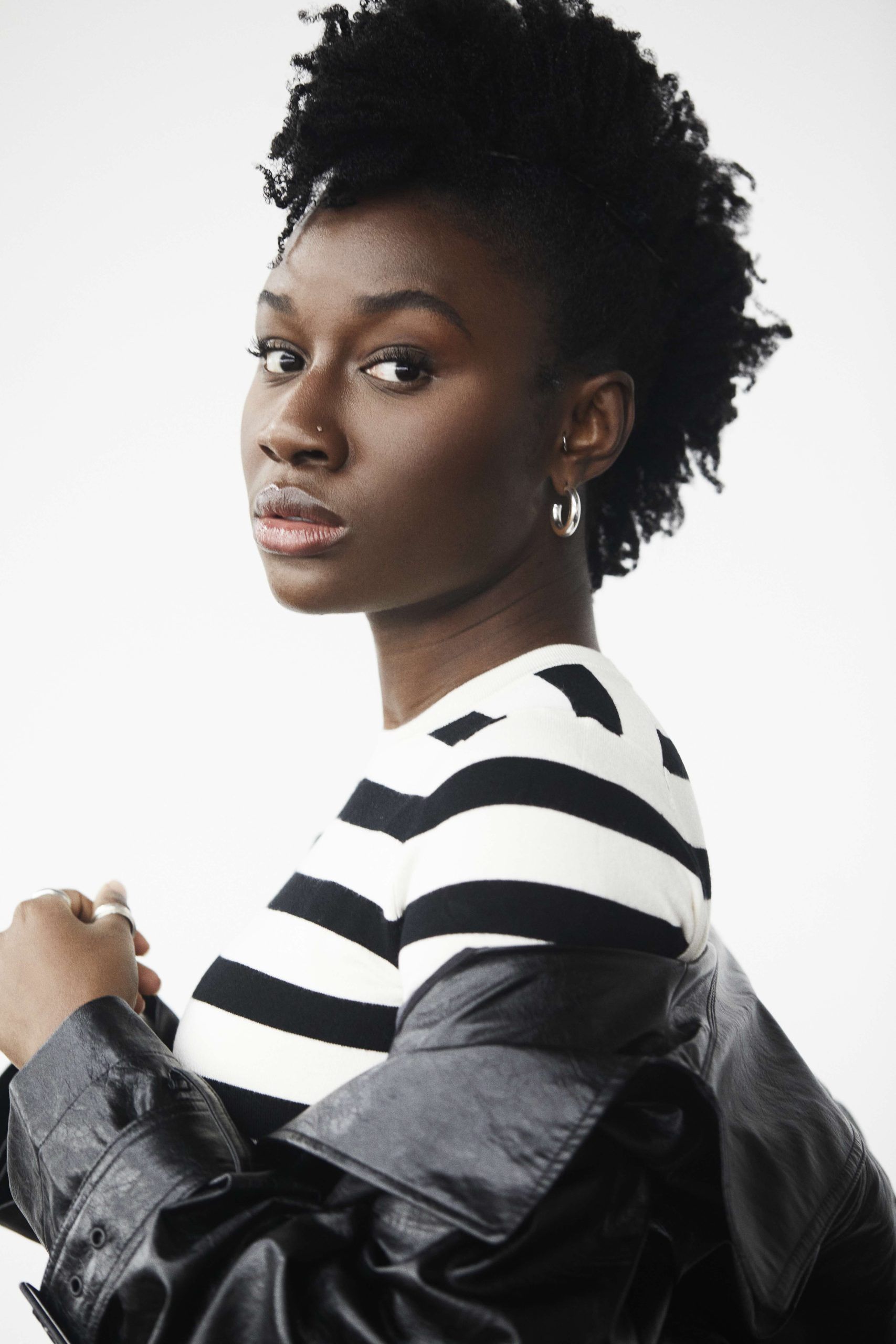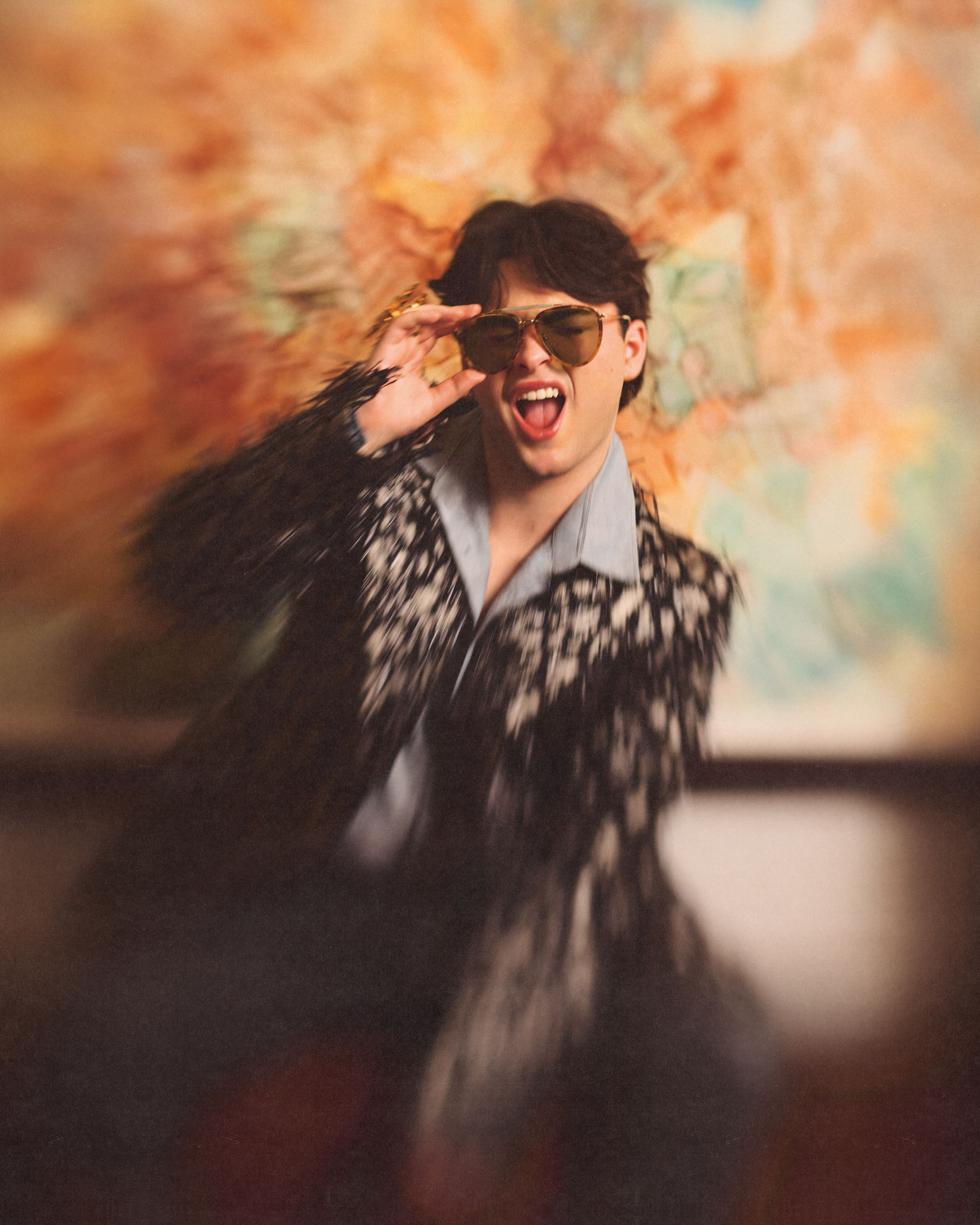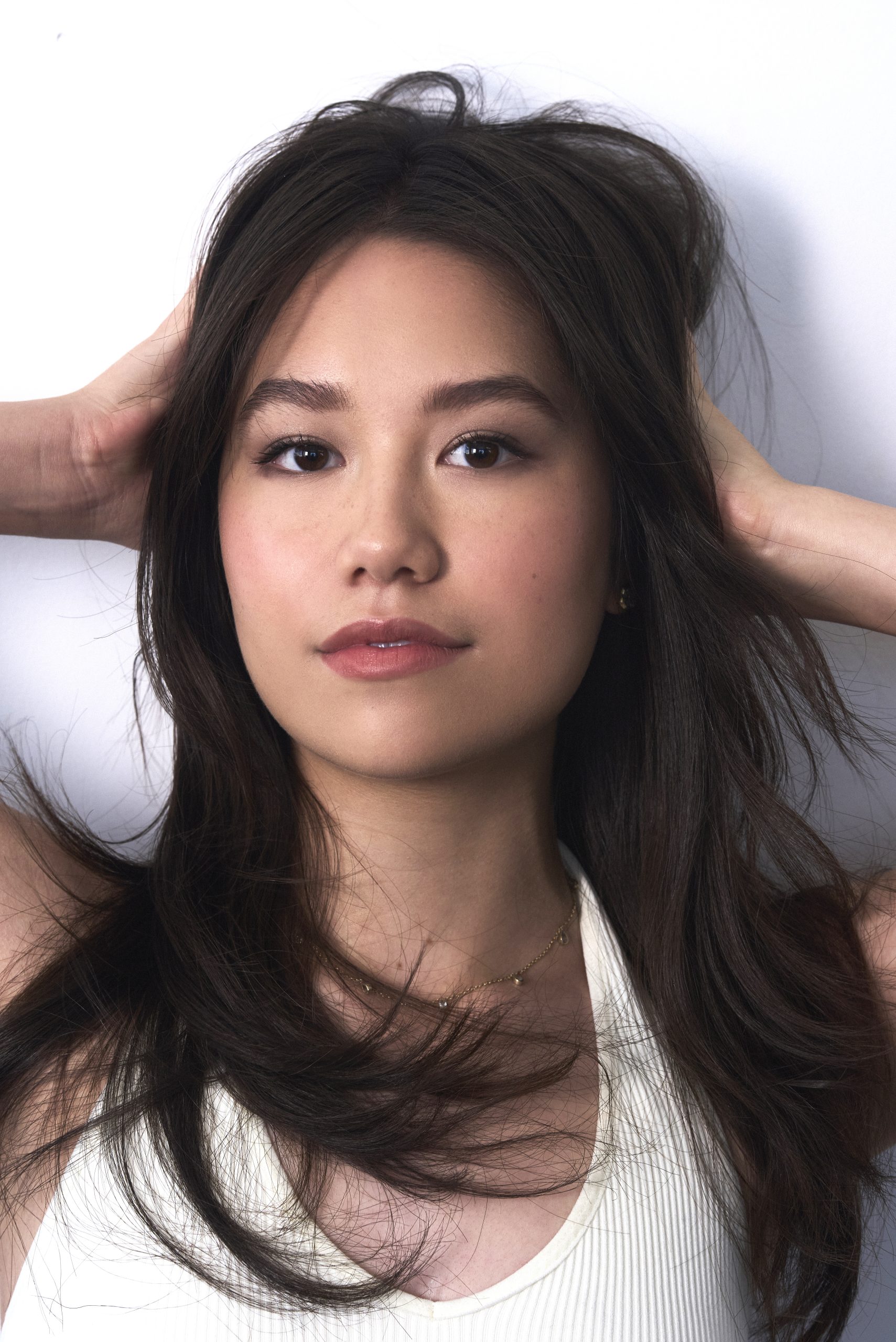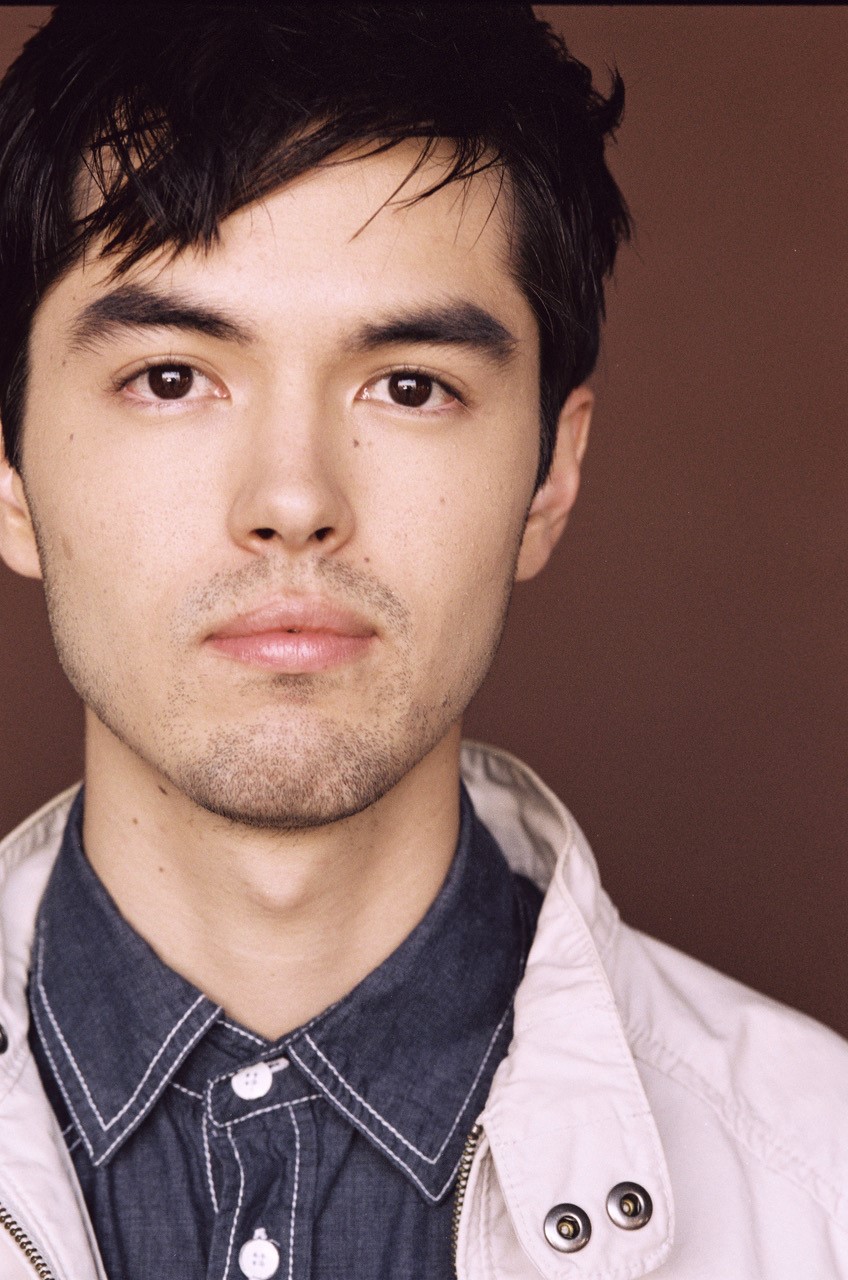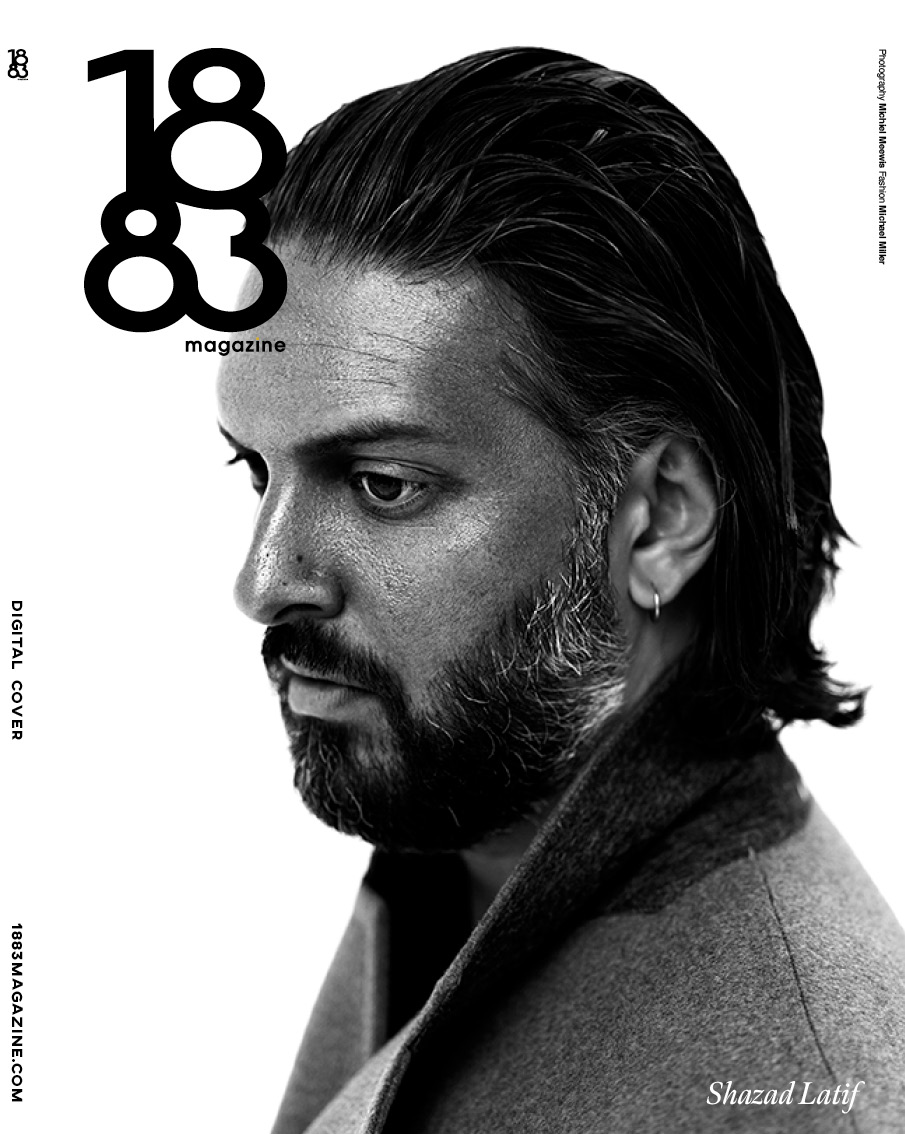Heather Agyepong is a British actress and visual artist, of Ghanaian heritage. She has a degree in applied psychology, a masters in photography & urban cultures, and her work focuses on issues around mental health, identity, and the Black diaspora.
Heather’s work as a visual artist is multi-award winning, and has been featured in prestigious exhibitions including the Taylor Wessing Portrait Prize at the National Portrait Gallery in London. Although she declines the title of ‘activist’, Heather uses her artistic platform to bring attention to the black community, exploring themes of invisibility and inequality, and the importance of mental healthcare. In a world which at times appears to be “on fire”, her work aims to provide catharsis for both the artist and her audience.
Heather’s on-screen acting career includes television roles in Amazon’s The Power, based on the award-winning 2016 novel by Naomi Alderman, and the BBC’s This is Going to Hurt. She has a film coming out on Netflix later this year, called Joy, but I’ll let you find out more about that by reading the interview.
As well as her on-screen acting, Heather garnered critical acclaim for her performances in the theatrical productions of School Girls; Or, The African Mean Girls Play and the UK tour of Noughts and Crosses.
Heather most recently starred in the play Shifters at the Bush Theatre, where it received rave reviews and sold out almost immediately it was on sale. This poignant play, written by award-winning writer Benedict Lombe and directed by BAFTA-nominated Lynette Linton, explores the complex relationship between two long-lost friends as they navigate the shifting borders of memory and reality. The play was so successful that it has now transferred to the West End and will be opening at The Duke of York Theatre on the 12th August for a limited 9 week run.
I sat down with Heather to talk about Shifters, her artwork, minority representation in the arts, and how to thrive in this crazy world.
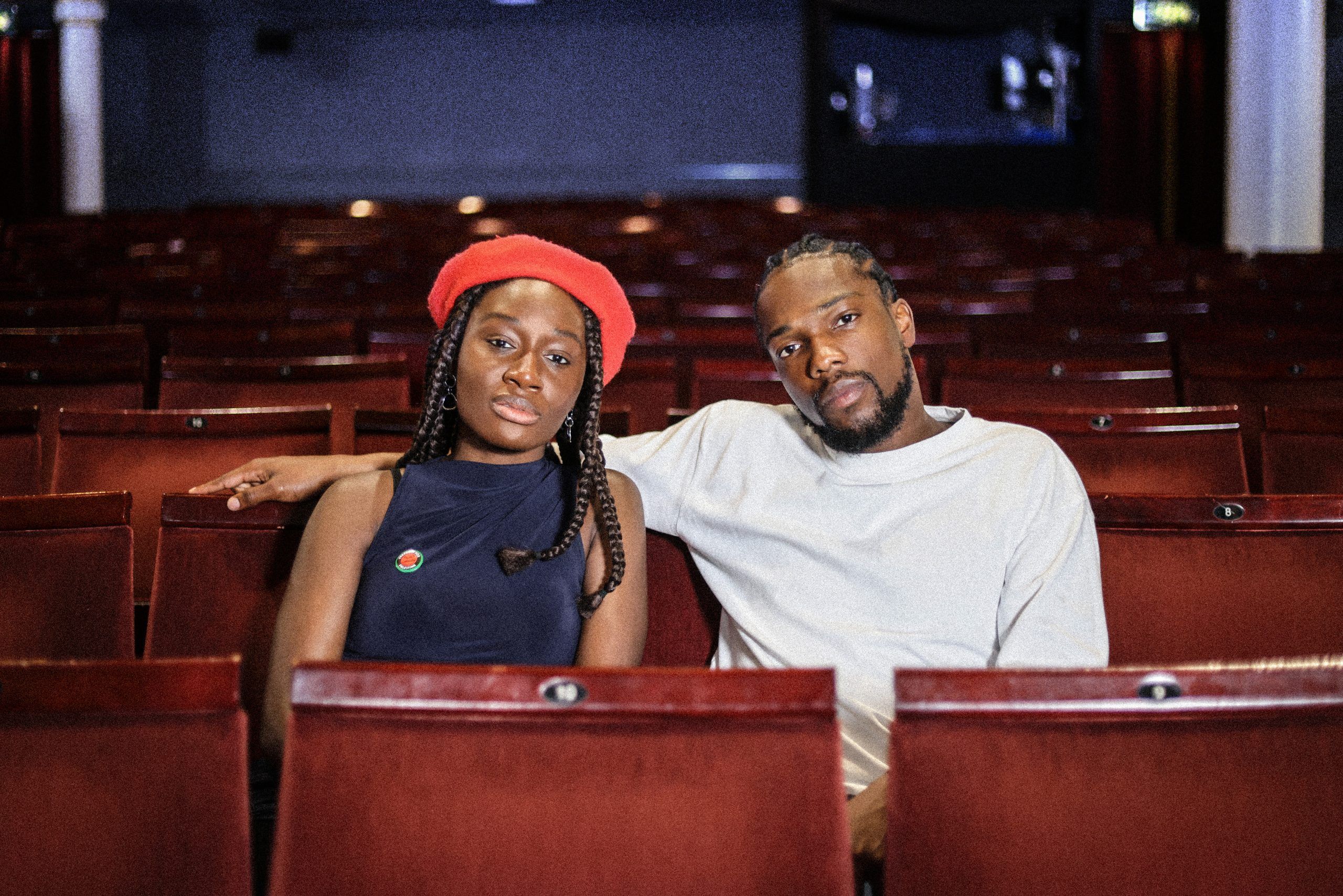
Hi Heather, great to meet you!
Nice to meet you, too.
Thanks so much for talking to me today, let’s just dive right in, shall we?
Okay, great.
How do you connect personally with your character Des, in Shifters, and are there any aspects of her story that really resonate, particularly with your own life experiences?
Well, first of all, I love her. She’s funny, she’s witty, she’s charismatic, and she’s an artist, so I love all of those components about her. In this West End transfer of the show, Bene, our gorgeous writer, has made some additions and edits. There’s a speech she says now about her work doing really well, but sometimes she finds it difficult to feel it. When I read that, I was like, “Drag me.” I heavily resonate with that.
I think it’s something about second-generation kids, this idea of always being excellent. When we do become excellent or win awards, it’s difficult to feel it because you’ve been told it’s the default. So this idea of being present and enjoying success and work resonates with me. I think that’s why it did so well at the Bush Theatre, because a lot of us can see ourselves in that, especially women and femmes. So, yeah, some bits absolutely resonate with me.
And how does your work as a visual artist influence the way that you approach acting and a character like Des? Do you find that the themes you explore intersect?
I think so. Because I’m always in front of the camera with my self-portraiture, this idea of accessing vulnerability feels like a bit of a crossover with TV work, but even more so with theatre. The importance of being witnessed by someone and how precious that time is with the audience really stands out. I’m really attracted to writing where someone wants to say something or explore a concept or idea. This idea of vision feels like something I’m really drawn to. It doesn’t have to be issue-based but often has a boldness about what it wants to say. I feel like I’m attracted to that sort of work.
So, yeah, there is a bit of a link between my art practice and my performance practice.
Because I have two jobs, I can be a little bit choosier in terms of what I want to commit to, as it takes a lot out of me. I’ve been lucky to pick plays that resonate with me.
You’ve been very open about the importance of mental health and well-being. With such a diverse and demanding life and career, how do you maintain your mental health while balancing it all?
Well, I think the main thing is having support. Lynette Linton, our gorgeous director, has a drama therapist on all of her projects. Someone called Wabriya King, who’s basically saving all of our lives around theatre in London. She’s been really integral in helping separate my personal life from my character’s life.
Like you said, there are some similarities between me and Des, but Wabriya is fantastic at creating this thing called a “character village,” which helps your body separate the two. When you’re performing, your body doesn’t know it’s an act; it believes what’s happening is true and stores a lot of tension and stress. Wabriya is really good at helping us compartmentalise it.
In terms of any acting work moving forward, I’ll always work with a drama therapist, even if the work doesn’t seem apparently triggering or heavily emotional. I just want to be able to separate the two more cleanly. So, yeah, I think working with a therapist is instrumental.
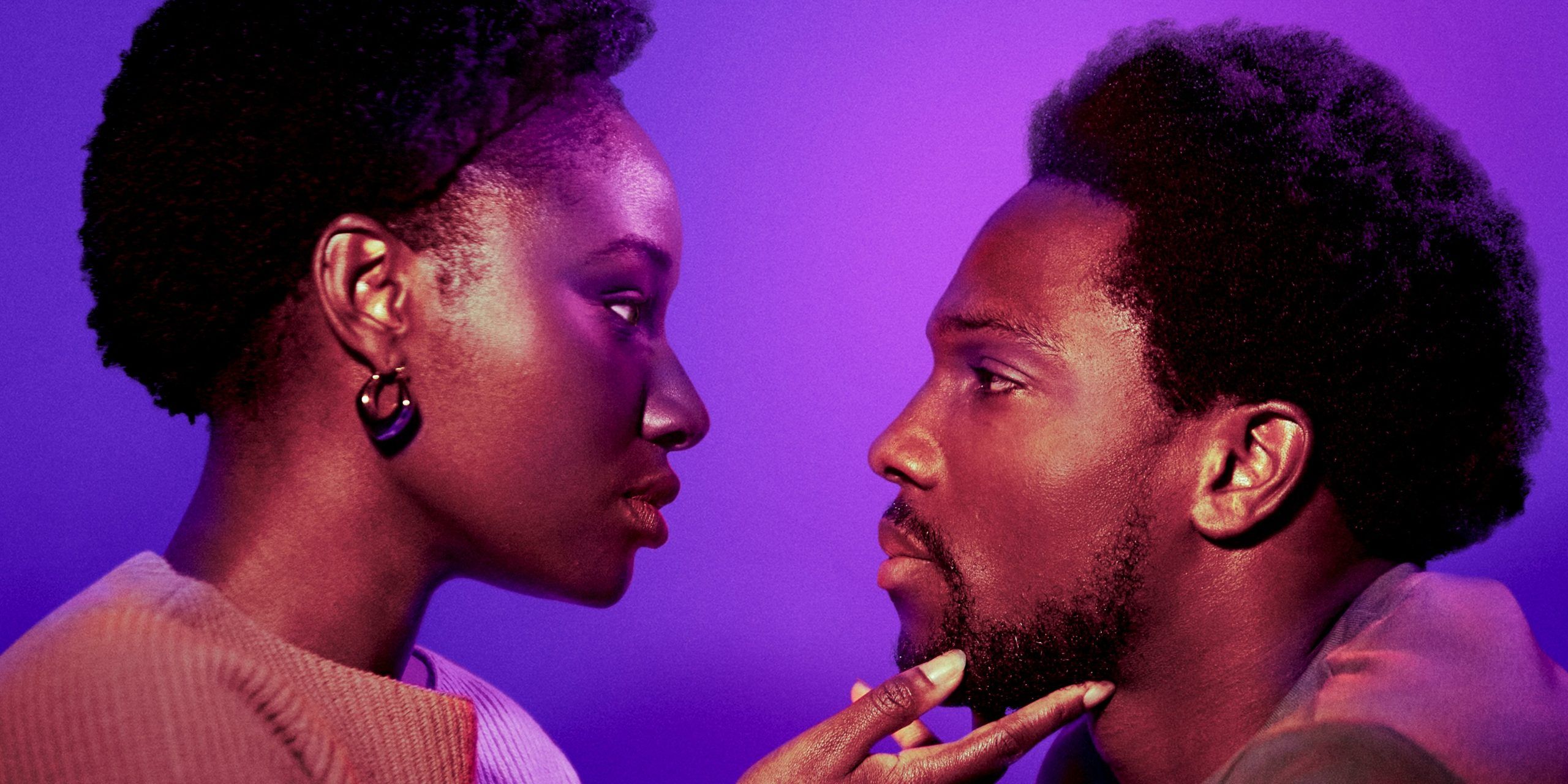
That’s amazing. So does her work really enable you to leave Des at the end of the day and just go back to being Heather without all the baggage? Is that what it’s about?
Yeah, scarily. She’s so good at that, actually. She just gives you practices, like ways to decompress, whether that’s listening to music or having a walk or whatever. She’s really fantastic at enabling you to separate the two because your body doesn’t know it’s not being traumatised or not crying or not falling in love. So you just have to have a method of derobing, I guess.
I love that description of how “your body doesn’t know” that it’s not real.
I mean, if you’re doing it well, you’re feeling the emotion and your body doesn’t know.
Absolutely.
Do you find that your psychology degree helps you to really get inside your characters on a deeper level?
What a great question. I think with my visual art practice, there’s a lot of theory around psychology and therapeutic practices, so definitely with my visual artwork, it’s been quite instrumental. With acting, I’m not sure. Maybe vicariously, but not that I’m conscious of. I guess I’m just really fascinated by human behaviour, I’m always trying to go deeper with each character that I get, so perhaps it does in that way.
You’ve played roles across TV, film, theatre, obviously all very different media. How do you prepare differently depending on the medium, and do you have a favourite?
I think I prepare the same. It always starts with the body for me. For instance, Des in Shifters uses her hands a lot to convey nervousness, anxiety, or excitement, so I usually hone in on a body part. With theatre, you need to exaggerate that so everyone, even in a massive 700-seat theatre like the Duke of York’s, can see it.
In TV and film, it’s more internal. I’m still thinking about the hands, but in a more cerebral way, a felt sense rather than something overt. It’s more delicate.
Do I have a preference? No, I’ve done a lot of theatre and I’m starting to do more TV and film. I think I’d like to do more TV and film; that would be really exciting. But I love it all, really.
It’s great to talk to someone who is loving life and loves what they do. That’s always a real pleasure.
(Heather laughs) Yeah, the world is on fire right now, right? But I know how I am. If I don’t hold onto hope and gratitude, I’ll just implode. So I’m just holding onto that. I think I give myself the capacity to think and then come back to myself because overwhelm can leave you catatonic. I don’t want that.
You sent me some of your questions in advance and I saw some questions about activism. Firstly, I wouldn’t call myself an activist because I know real activists. For me, protests have been a great way to channel frustration and feel part of a community. Seeing the news can make you feel overwhelmed and stuck, but protests help expel that energy and remind you that you’re not alone. Since 2020, going to protests has been a way for me to channel frustration.
You might not see yourself as an activist, but you’re taking a stand publicly. That’s activism, right?
I say that because I know people who dedicate their lives to it, changing policy and doing tangible things. I offer visibility with my profile. I hope it makes a difference.
It does make a difference. It’s subtle because it’s art, but it’s still important.
Thank you.
On that note, how do you hope audiences will engage with Shifters? What messages or feelings do you hope they take away from the performance?
So Bene Lombe is stunning at writing about the complexities of humanity. This story is a love story, and when it comes to love, she wants to convey this idea of being seen fully. When people come to loving relationships, they’re not a blank slate; they come with emotional baggage, scars, and secrets. The idea is that you can show up as your messy, imperfect self and still be worthy of love.
I think that’s what has sold out the show and made the work so successful – being loved despite all your flaws. This idea of radically being seen and accepted is what I hope the audience connects to. What’s great about the West End is that it allows more people to see the show. Allowing more people to experience it feels really special.
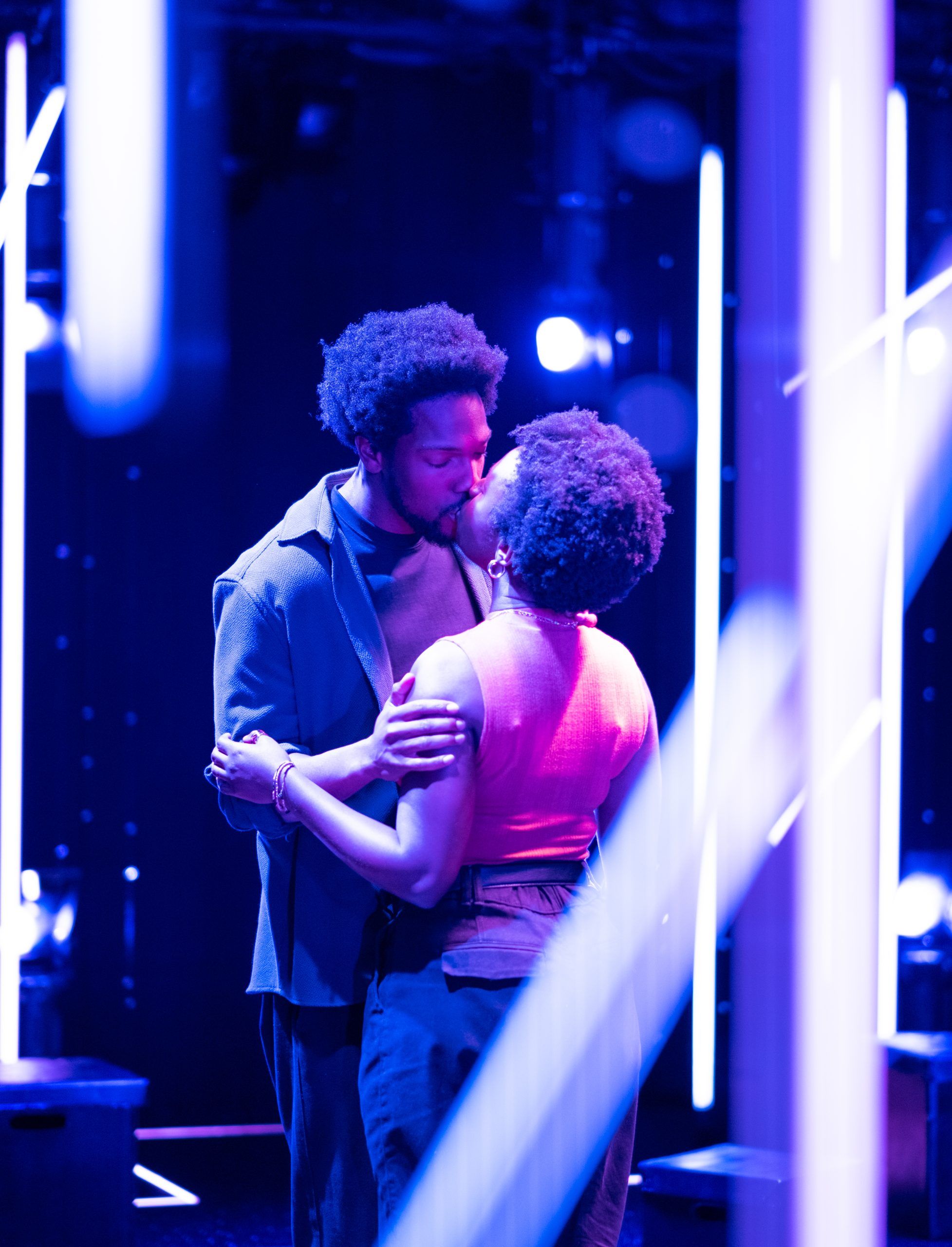
Self-acceptance and self-love, no matter who you are. Such an important message.
Yeah, and knowing you’re worthy of love, despite all your shortcomings and all your issues. It’s really beautiful because, in an age where perfectionism and idealism seem like the standard, this play dispels that. It shows you can be messy, problematic, and have gone through things, and still be worthy of love.
You often mention taking breaks and protecting your energy. What activities or practices do you find most rejuvenating and creatively inspiring?
Well, summer in London is my favourite time ever. The sun really transforms my mood. Being outside as much as possible and taking long walks helps a lot. I used to walk just to get from A to B, but when I started walking for leisure, I realised I started processing things I didn’t even know needed processing, like thoughts and ideas about the day. Walking has been great for that. I have the privilege that I’m able-bodied, so I can enjoy walking a lot.
Physiotherapy has also been important. I hold a huge amount of tension in my body, so going to a physiotherapist to relieve that stress has been really helpful. So, yeah, walking and physiotherapy.
As a white man, I strive to do my best to understand and support discussions about race and representation. What do you think are the most important things that allies can do to support minority artists and communities?
That’s such a big question, man. Great question, though. I think it’s about having a sense of compassion. Interrogating compassion feels really key. Sometimes people feel like being an ally means you’re going to lose something. But from the people I know who call themselves allies, there’s a real gaining of knowledge, deeper connections, community, and understanding the world as a whole. The majority of this planet is non-white, right?
So most people’s experiences in the world are from a non-white lens. Being an ally is about understanding the world a bit better. It’s less about losing something and more about gaining a sense of how people and communities operate, and building really deeper relationships. Yeah, compassion and knowing that you’re going to gain something feels important to reiterate.
Your work often highlights the importance of mental health within the Black community. How do you see the intersection of race and mental health, and what do you believe needs to change in society to better support mental health in minority communities?
Wow, that’s a great question. I use myself as the subject. Lauryn Hill said this really beautiful thing: “Before I give people advice, I want to test it on myself.” So, my work is very specific in terms of it’s about my experience. Talking about the Black and brown, or Black experience can feel too homogeneous, as everyone has different issues.
Using myself as the subject and being vulnerable about my own mental health issues allows for a sense of compassion. Compassion creates change. Mental health often isn’t visible; until it gets really bad and manifests physical symptoms. I’m interested in making the invisible visible through creating art about mental health.
The main barriers are often socio-economic. Private therapy is quite expensive, especially for Black communities who often fall into working-class categories. Organisations like Black Minds Matter offer free therapy for Black folks, which is crucial. Black people are four times more likely to suffer a serious mental health issue than their white counterparts. There’s a lot of stats about how bad it is, but interventions often come too late, only when people are in crisis.
It’s about early intervention. The question is really about social care in general. Mental health support in this country needs more funding in the right places. Early intervention around mental health would actually reduce the impact on the NHS, as it would prevent people from getting ill or hurting themselves. It’s a holistic approach around the significance of early intervention in general.
I haven’t seen the show yet, but Alex Berry’s set looks amazing. How does the innovative design influence your performance?
Alex Berry is a genius. There’s an artist, Yayoi Kusama, who created the Infinity Rooms at the Tate, and the set feels like that, as if you’re floating in space. Bene really wanted the show to have a dream-like quality because we travel in and around time through feeling and emotion.
When you see the set, it seems like the characters are floating in space. We had to act against that to ensure the show didn’t feel like a dream, but instead made the audience question where they were in time and space.
The audience’s experience feels quite ethereal and beautiful, especially with the lighting. Neil Austin, the lighting designer, has done a gorgeous job. Lighting Black skin can be challenging, but Neil Austin and Alex Berry have worked symbiotically to create this dream-like feel.
So, while the set design hasn’t directly impacted my acting, it has definitely created an immersive experience for the audience.
Representation in the arts is a crucial aspect of your work. What changes have you seen over the years in terms of representation, and what further changes would you like to see?
Well, I think Shifters itself is a good example – having two Black leads on the West End stage is pretty incredible. Bene is the third Black British woman ever to have her work transferred to the West End, which is mad, but it’s a cause for celebration. It feels like more than just a play; it feels like a moment. Bene wants to shift the canon of what romantic leads look like, especially for Black women, who are often not seen enough in romantic roles.
We’re shifting something in representation with this work about love. Often, works centring Black folks are purely issue-based, which is incredibly important, but we have a multiplicity of stories. This idea of love and its messiness being celebrated in the West End feels important. I’m feeling really optimistic.
We’re making our own work, we know it’s important, and it sells really well. Shifters sold out really quickly, and there were queues outside the Bush Theatre. The idea that shows with Black leads won’t work is being proven wrong, which is a cause for celebration. So, yeah, I’m feeling really hopeful about it.
How do you stay motivated and hopeful in your stand for change, especially when faced with challenges or setbacks?
I think community has been my biggest source of support and hope, especially early in my career. I have mentors who have been really instrumental, both in the art world and in acting. They are often older Black or brown women who have navigated similar paths and have shared their wisdom with me.
Community has been really important, and my team, including my agent, understands that I am both an actor and a visual artist. When I was starting out, people didn’t really understand who I was; it was always “either this or that.” But having people who actually understand that I’m both, and that it’s not a hobby, has been crucial.
Having someone who understands your artistic vision and having a strong support system has been my anchor.
Were there any specific moments or experiences that inspired you to dedicate your life to making a difference in the Black community and other minority communities?
It’s an interesting question because I think the first project I made, Too Many Blackamoors, had people wanting me to talk about race in a particular way. I remember thinking I want to talk about all things – race and gender, sure, but also love and vulnerability. I didn’t want to feel like I had to represent my community in a specific way.
So, after that project, I wanted to make work from all sorts of lenses and not always be seen from a racialised gaze. However, during 2020, after George Floyd was murdered and there were widespread promises to be anti-racist, I felt a sense of empowerment and bravery. I decided to talk about my work and make it boldly and radically without compromise. If institutions promise to support anti-racist efforts, I’m going to hold them to account.
Those two moments – after Too Many Blackamoors and during 2020 – made me want to make work primarily for myself. It can incorporate my community and my gender, but it’s ultimately whatever I want to explore.
I have to ask you about The Power, because I absolutely loved the book, and then the show too. What drew you to the role of Ndudi and how did you prepare for it?
The book is incredible. Naomi Alderman’s idea around women in power felt really exciting. Naomi wanted to talk about the Black African female experience, which I was really excited to represent. I remember chewing her ear off, and I had big conversations with the writers Claire Wilson and Sarah Quintrell about developing that character and what that looks like, discussing intersectional feminism and representing it as best as possible. It was an enormously collaborative experience.
To prepare, I researched a lot about Nigerian activists and the activism going on at that time among the younger generation. I read their interviews and learned what it meant to be an activist in Nigeria. It was a combination of that research and collaboration with the writers. It was incredible. The writers have become my friends and family for life.
Awesome. So what’s next for you?
The next thing I’m doing is a film called Joy coming out on Netflix, I think in the fall. It’s about the creation of IVF, and I play a character who is part of the research group using their wombs to create IVF. It’s written by Jack Thorne and directed by Ben Taylor, who directed Sex Education.
That was an incredible experience. I’ve also just won an award, the New Art Exchange Main Exhibition Award. I’ve been awarded a solo exhibition next year and given a whole bunch of money to make some work, which is amazing. So those are the things I’m doing next.
Wow! Congratulations, that’s amazing.
Thank you, I’m over the moon.
Well, Heather, it’s been such a lovely pleasure talking to you, thank you so much for your time.
Such a pleasure, Nick, thank you.
Shifters is playing at The Duke of York Theatre from 12th August to 12th October 2024.
For tickets go to www.shifterstheplay.co.uk
Words by Nick Barr
Photography Top image David Reiss

